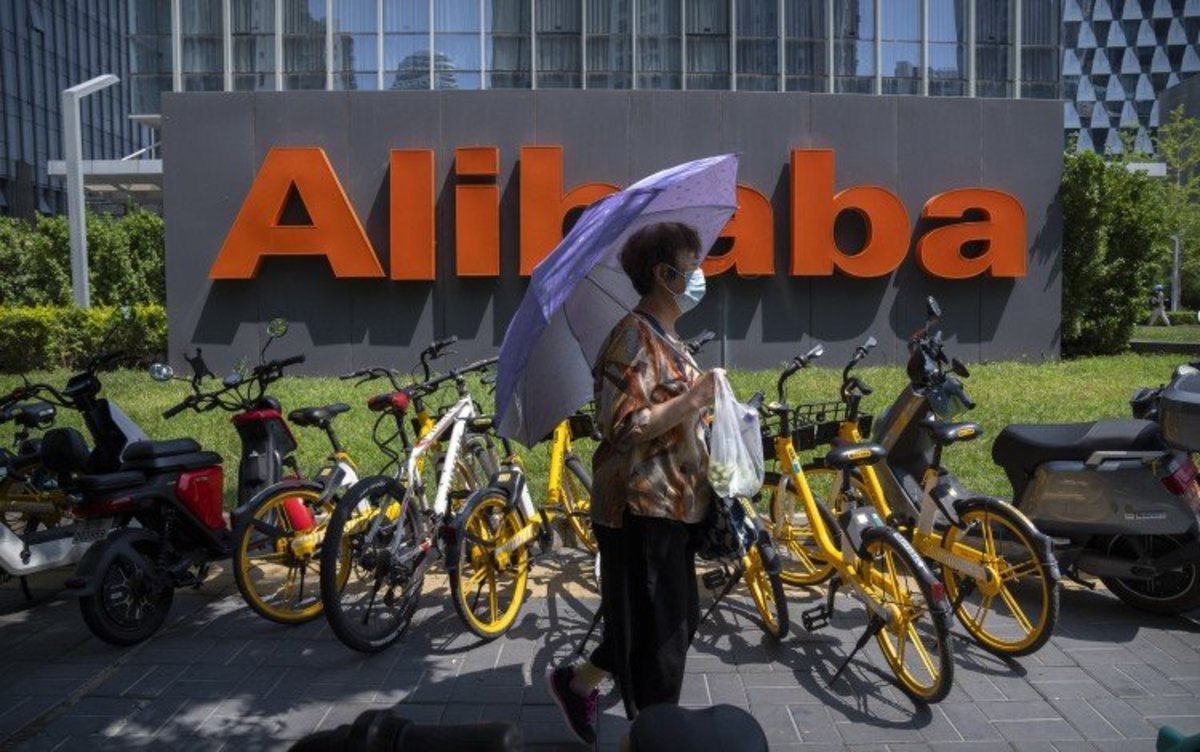
Alibaba Group Holding (BABA) -) shares edged modestly lower in pre-market trading after CEO Daniel Zhang, who was set to run the China-based tech giant's cloud division, abruptly resigned from his role over the weekend.
Zhang, 51, served as both CEO and chairman of the group, Asia's most-valuable tech company, from 2015 until earlier this year when it unveiled plans to split into six separate companies that would eventually list as individual entities.
His roles as chairman and CEO were split between Joseph Tsai and Eddie Wu -- two close associates of billionaire co-founder Jack Ma -- on Sunday, with Zhang slated to take the helm of its cloud division, Asia's biggest and estimated to be worth as much as $60 billion.
Instead, Zhang will run a new technology fund, tied to Alibaba, with the role of cloud CEO going to Wu,
"Daniel has expressed his wish to transition away from his role as chairman and CEO of Cloud Intelligence Group," Alibaba said in an internal memo cited by multiple media outlets. "Following careful consideration, the Alibaba board respected and accepted Daniel's decision and appointed Eddie as acting chairman and CEO of Cloud Intelligence Group, effectively immediately."
Alibaba shares were marked 0.06% lower in pre-market trading to indicate an opening bell price of $90.00 each. The group's Hong Kong listed shares fell 3% on Monday.
Alibaba's Cloud Intelligence Group contributed around 10% of the company's total revenue last quarter, even as its top line fell 2% from a year earlier to just over $2.7 billion.
Softer corporate spending trends in China, owing in part to its uneven post-Covid recovery, forced a change in tack for the cloud division heading into the summer months. A price-reduction plan, focused on acquiring new users, will likely accelerate its scale expansion while eroding the group's margin expansion.
A full spinoff, paid through a stock dividend to existing Alibaba shareholders once the group is listed, is expected sometime in the next 12 months.
"Cloud intelligence business model, customer profile, and the stage of development are fundamentally different from the other consumer-focused businesses in Alibaba ecosystem," Zhang told investors on a conference in May. "Full independence will allow cloud intelligence to further sharpen its business strategy and optimize its operations and organization."
The decision to split the broader group into separate business units follows the Chinese authorities' move to loosen their grip on the broader tech and business sectors in the world's second-largest economy, as the country seeks to reignite growth following three years of lockdown orders.
Earlier this year, Guo Shuqing, a Chinese Communist Party secretary of the People's Bank of China, said the country's two-year investigation into the tech sector would be "normalized" over the coming months.
Support will be provided to those companies prepared to play a bigger role in creating domestic jobs as the economy attempts to recover from its long covid-era pullback, the executive said.
- Get exclusive access to portfolio managers and their proven investing strategies with Real Money Pro. Get started now.







